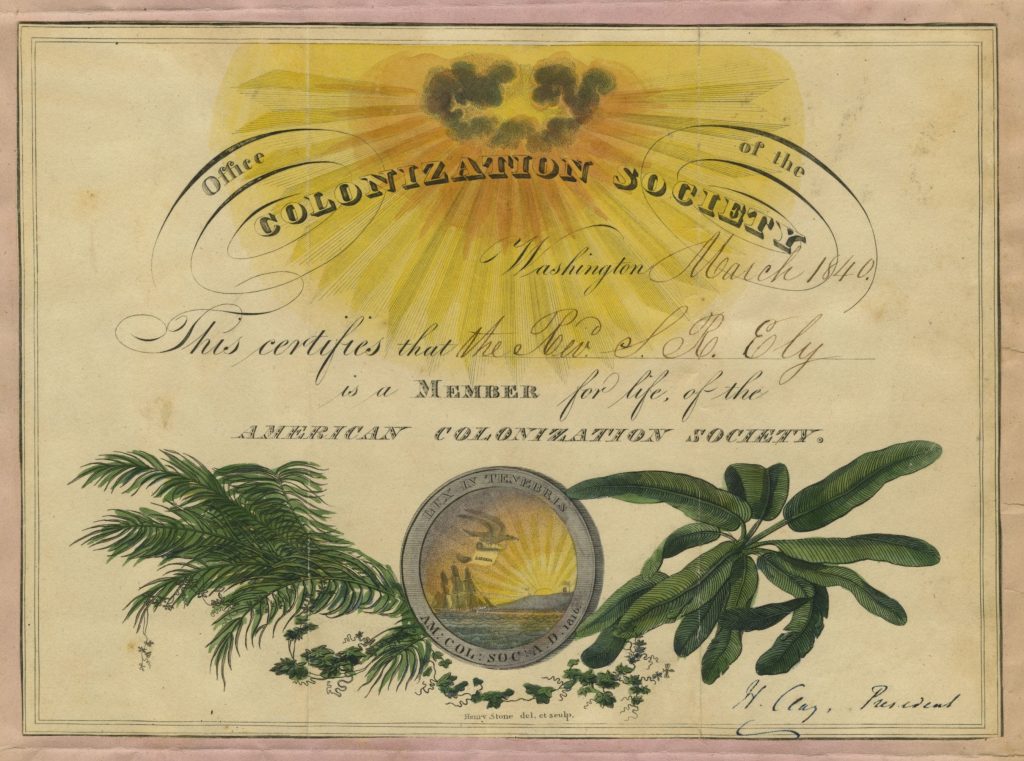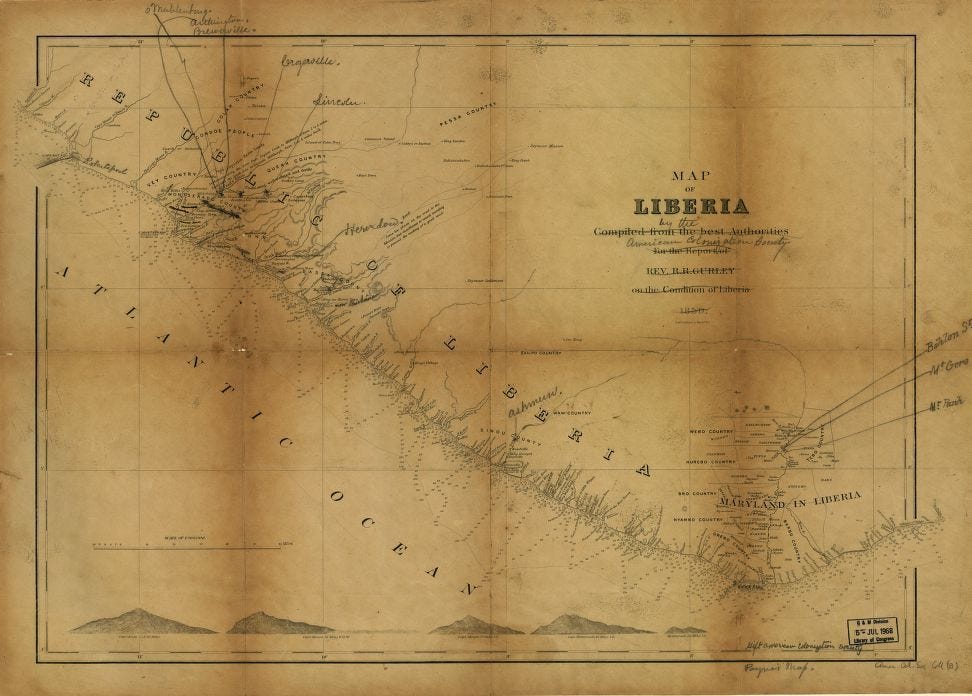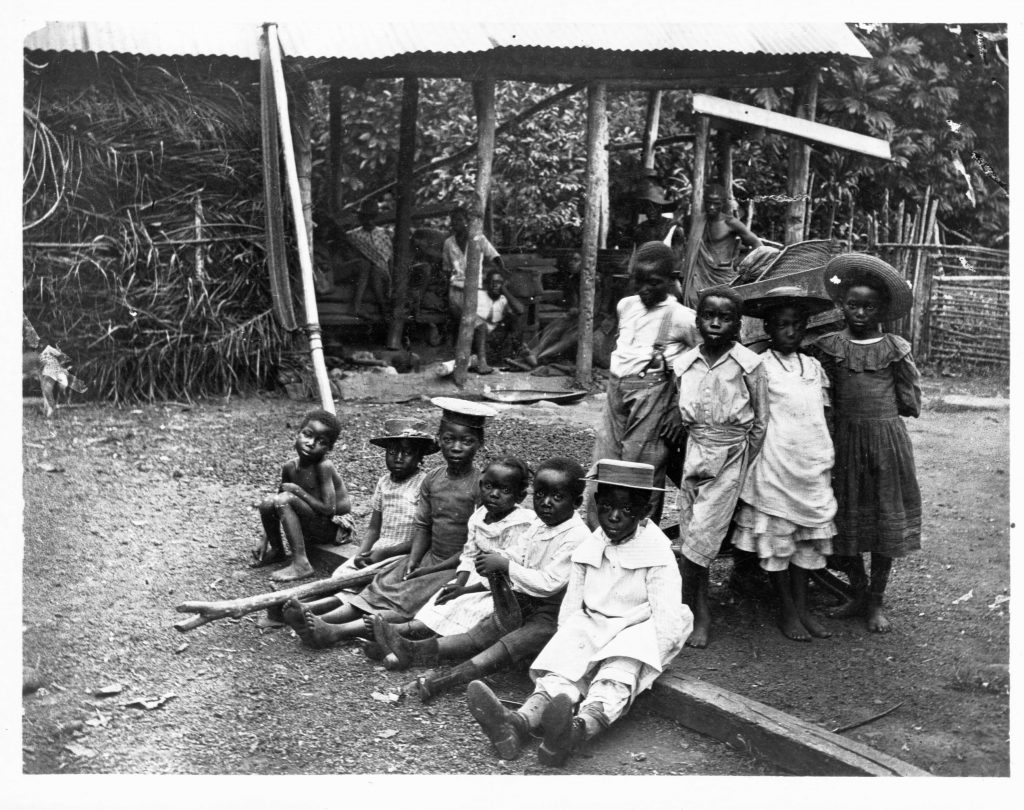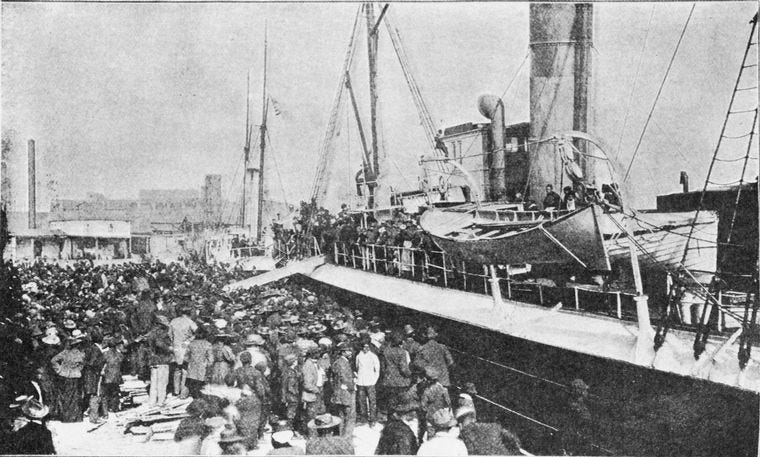- The American Colonization Society's mission was to relocate freed Black Americans to Africa.
- Starting in 1820, thousands of Black emigrants were shipped to what would become Liberia.
- The society's segregationist ideology has a lasting impact on America and Liberia.
On December 21, 1816, a group of fifty white elites gathered in a Washington, D.C. hotel to discuss the future of freed Black Americans.
Following the American Revolution, the number of freed Black Americans had grown from 60,000 in 1790 to 300,000 by 1830. The American Colonization Society emerged as the solution, with the mission of shipping Black people to a colony in Africa.
The organization was the brainchild of the Reverend Robert Finley, a Presbyterian minister from New Jersey. The ACS' early supporters included some of the nation's most powerful and influential men, including Henry Clay, Daniel Webster, and Francis Scott Key, as well as slave-owning US presidents Thomas Jefferson, James Monroe, and James Madison.
"Can there be a nobler cause than that which, while it proposes to rid our country of a useless and pernicious, if not a dangerous portion of our population, contemplates the spreading of the arts of civilized life?" Clay said in his opening address.

Colonization, the state-sponsored emigration and resettlement of freed Black Americans outside America, was widely supported in the US for religious, economic, and social reasons. Even after its dissolution in 1964, the ACS has left a lasting legacy of segregationist sentiment in both America and abroad, according to historians.
"The establishment of the American Colonization Society was a watershed moment in American history," Eric Burin, a history professor at the University of North Dakota, said. "What you have is a powerful white organization propounding a vision of America as a white person's country, and African Americans responding with a resounding rebuttal that it's their country, too."
A 'miserable mockery'
The ACS attracted a diverse crowd of white individuals, including slaveholders who saw colonization as a way to remove freed Blacks, whom they feared would cause chaos by helping their slaves escape or rebel.
Many white Americans also believed that African Americans were inferior, and should be relocated to a place where they could live in peace away from the shackles of slavery. Abraham Lincoln held this belief, which led him to support a plan to relocate 5,000 Black Americans to the Caribbean in the 1860s.
The ACS also had a religious mission of Christianizing Africa to "civilize" the continent, according to historian Marc Leepson.
The initial reactions of the Black American community and abolitionists were nuanced. Some activists, like James Fortein, immediately rejected the ACS, writing in 1817 that "we have no wish to separate from our present homes for any purpose whatever".
But some other Black abolitionists were cautiously interested in the notion of an emigration program. Martin Delany, who was dismissed from Harvard Medical School after white students petitioned against the inclusion of Black students, claimed that even abolitionists would never accept Black Americans as equals, and so the solution lay in the emigration of all Black Americans.
"We are a nation within a nation," Delany wrote. "We must go from among our oppressors."
But even Delany ultimately condemned the ACS's hallmark plan to send Black Americans to Liberia, decrying it as a "miserable mockery" of an independent republic.
It led to the creation of Liberia
As the ACS grew, it sought to create a colony in West Africa. On February 6, 1820, 86 freed Black Americans set sail to the continent.

The initial expedition — and the expeditions that followed — proved to be disastrous as disease and famine struck. Of the more than 4,500 emigrants who arrived in Liberia between 1820 and 1843, only 40% were alive by 1843.
But the ACS, backed by funding from state and federal governments, continued to send more freed Blacks. In 1821, the society purchased Cape Mesurado from the indigenous people — by threatening the use of force, according to some accounts.
The land surrounding Cape Montserrado would later be known as Liberia, "the free land." Its capital was renamed Monrovia in honor of James Monroe, an ardent supporter of the ACS.
The settlers developed an Americo-Liberian society that was strongly influenced by their roots in the American South, according to Burin. Americo-Liberians wielded vast socioeconomic and political power over the indigenous people — which planted the seeds for the Liberian Civil War of 1989.
"The Americo-Liberians realized they could essentially exploit the indigenous people for labor," Burin told Insider. But it was a way for indigenous people to gain access to resources and education as well.
A lasting legacy of segregationist sentiment
Though the ACS eventually dissolved in 1964 after continuous opposition from abolitionists and a lack of interest by free Black Americans, historians said it shaped — and continues to shape — the country's discussions of race.
"One of the ACS' lasting legacies was the underlying ideology that drove the colonization movement forward: that Black people really aren't Americans, at least not in the way that white people are," Burin said.
The sentiment manifested itself in policies like Jim Crow-era segregation, and still has a grip on some Americans to this day.

The second legacy of the ACS is Liberia itself. In 1847, Liberians declared the country an independent nation, becoming the second Black republic in the Atlantic after Haiti.
"The ACS founded a country that has had a distinctive influence over debates of freedom, slavery, and race today," Burin said.

